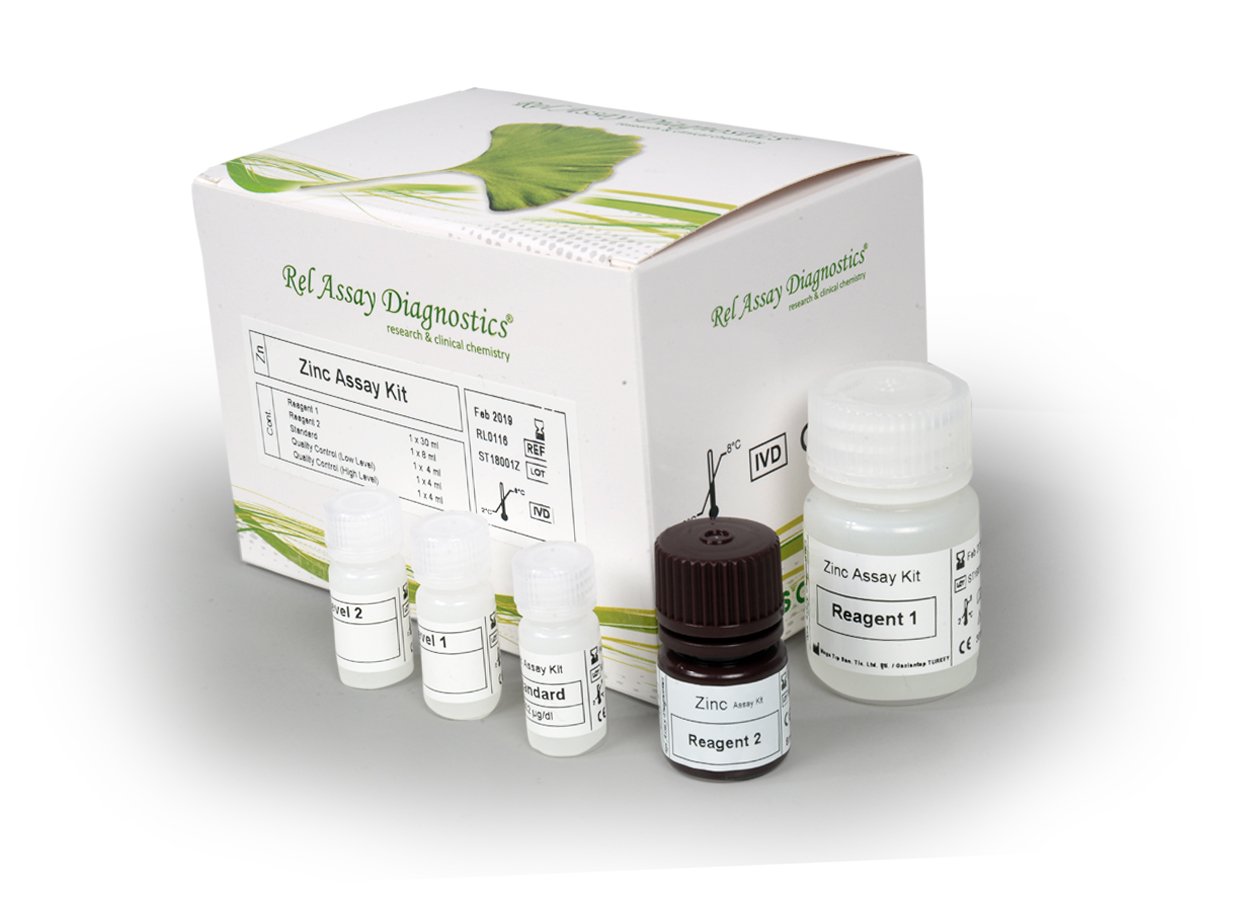Zinc is the
second most abundant trace element in the body, found in more than 300
metalloenzymes. Carbonic anhydrase, alkaline phosphatase, DNA and RNA
polymerases could be listed as important examples. Due to its multiple
biochemical functions, zinc deficiency manifests by variety of conditions.
Growth failure and stunning, alterations in immune function, diarrhea, skin
lesions and alopecia are observed in cases of clinical deficiency. Subclinical
deficiency has effects on immune function, synthesis and action of hormones,
and neurological function.
Zinc found in the samples change the red-orange color
of 5-Br-PAPS to light pink under alkaline conditions. The change of absorbance
at 548 nm is proportional to total zinc level in the sample. The assay can be
calibrated with zinc sulfate dissolved in deionized water.
| Reagent 1 | 1 x 30 ml |
| Reagent 2 | 1 x 8 ml |
| Standard | 1 x 4 ml |
| Quality Control - Level 1 | 1 x 4 ml |
| Quality Control - Level 2 | 1 x 4 ml |
1. Burtis CA,
Burns DE. Tietz Textbook of Clinical Chemistry and Molecular Diagnostics.
Seventh Ed. Elsevier Health Sciences; 2014. p. 493-496.
2. Rink L, Gabriel
P. Zinc and the Immune System. Proc Nutr Soc. 2000;59:541-52
3. Homsher R, Zak
B. Spectrophotometric Investigation of Sensitive Complexing Agents for the
Determination of Zinc in Serum. Clin Chem. 1985;31(8):1310-3.
4. Barnes PM,
Moynahan EJ. Zinc Deficiency in Acrodermatitis Enteropathica: Multiple Dietary
Ontolerance Treated with Synthetic Diet. Proc roy Soc Med. 1973;66:327-9.
5. Prasad AS. Zinc
Deficiency. BMJ. 2003;326:409-10.
6. Young DS.
Effects of disease on Clinical Lab. Tests, 4th ed AACC 2001.

